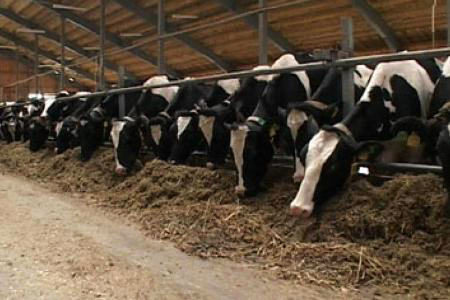BAKU, Azerbaijan, Nov. 14
By Fakhri Vakilov-Trend:
Uzbekistan’s President Shavkat Mirziyoyev held a video conference on the further development of livestock, poultry, fish farming and sericulture, Trend reports citing the presidential press service.
The president noted that starting from next year; subsidies will be allocated for livestock, fish farming and poultry farming. Subsidizing, according to international experience, will be made in proportion to the volume of finished products, read the message.
According to head of state’s decree on Oct. 23 of this year, the Strategy for the Development of Agriculture in Uzbekistan for 2020-2030 was adopted. As part of this document, the modernization of the agrarian sector using modern approaches has begun. In addition, on Nov. 7, the President signed a decree “On the accelerated development of livestock industries in Republic of Karakalpakstan”.
Particular attention at the video conference was paid to the development of the livestock feed base. According to the president, the need for livestock feed in Uzbekistan is 120 million tons, but only 47 million tons were produced last year, so the demand was satisfied by 40 percent, read the message.
In Yangiyul district, an intensive cultivar of corn was grown as a second crop, from which 50-60 tons of silage were obtained, with cost of only 1 cent per 1 kilogram. Moreover, a kilogram of husk is on the market at the price of more than 21 cents. This means that livestock farmers themselves are able to grow feed 10 times cheaper than meal and husk, read the message.
President criticized the fact that the land allocated for fodder crops is used for other purposes and not efficiently.
The head of state stressed that over the past 10 months of this year, beef cattle worth $100 million were imported from abroad. In this regard, instructions were given for the allocation of land to livestock breeders and the proper distribution of crops to strengthen the food supply read the message.
The head of state pointed to similar problems in poultry farming. For example, 70-75 percent of the feed needs of the industry are met by imports; for 10 months of this year, 160,000 tons of soybean and sunflower meal for $80 million and 80,000 tons of corn for $14 million were imported. This year, only 5,000 hectares of land were allocated to industry enterprises for fodder storage instead of the planned 137,000 hectares.
The necessity of organizing large farms for 2,000-5,000 heads of cattle by creating grain-growing clusters based on the experience of the Tashkent region was emphasized. Moreover, such clusters will be organized by allocating 300-400 hectares of land per 1,000 head of cattle to farmers, read the message.
---
Follow author on Twitter:@vakilovfaxri






